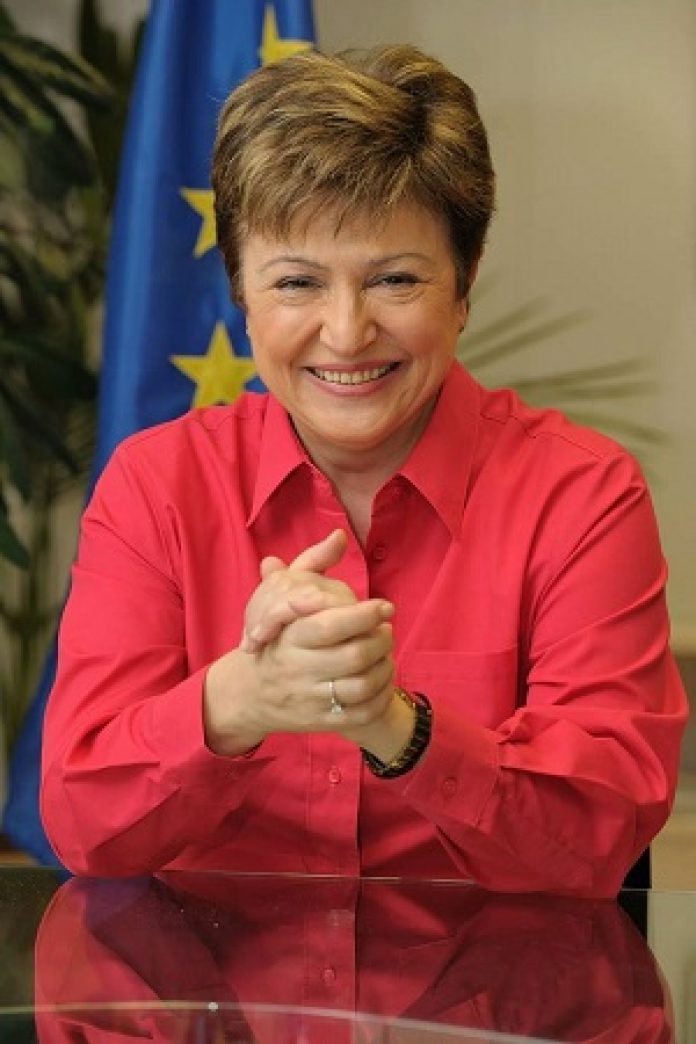By Rumyana Vakarelska
Our national unity is not for sale as Bulgaria has to take a more explicit stand on Putin’s Russia, following new figures from EBRD showing that EU countries, including Bulgaria, have lost relatively little from Russia’s embargo on EU goods, as a result of the political and military crisis in Eastern Ukraine. Yet the Bulgarian political parties aiming to win votes at the next month’s early general elections stand openly divided on the issue. This may lead to more populism and less stability at the elections and affect the results.
Following the mass protests that led to led to the fall of the left of centre coalition government of Oresharski, Bulgarians and Bulgarian politicians have recently found it hard to find unifying factors that are yet to shape our divided society. As a result, a clear statement on behalf of those calling for votes on the simple issue of Bulgaria’s strategy towards Putin Russia, will deliver the clear message that many confused voters need ahead of the elections.
Bliznashki’s care-taker government has at large taken the stand to reflect Bulgaria’s new post-1989 North-Atlantic values and independence, most recently through public statements on the goals of the next 43rd National Assmebly. They were also recently formulated by the current Vice-Premier for economic policy Ekaterina Zakharieva, but not in the pre-election party political campaigns so far.
So Bulgarian voters at home and abroad will struggle to make an informed choice based on sustainable unity factors. In addition, some 2, 3 million Bulgarian voters world-wide would not be able to choose a personality, just a party.
Meanwhile, their own party ‘Drugata Bulgaria’, the Other Bulgaria, will not participate due to administrative errors in the party’ registration for the elections.
Last week’s vote for Scottish Independence, have shaken the British nation, as its unity was at stake, even after Britain has already got a devolved national structure of England, Wales, Scotland and Northern Ireland and the special case of UK’s small islands. Voters, who rejected independence and voted for UK’s unity made for 55 per cent of the vote compared to 45 pc, which voted for Scottish independence. Many EU citizens living in Scotland notably campaigned for independence.
On 22 September, Bulgaria celebrated 106 years of its independence, bringing fresh questions on national unity, which is the basis of a societal progress. Finding the new uniting factors in contemporary Bulgaria is not this easy, but the Bulgarian political parties can at least try to find a few.
Although the Bulgarian care-taker government could have responded quicker to Bulgarian farmers’ demands for compensations that can cover their losses as a result of the Russian embargo on EU goods (table with figures is listed below), voters should not remain complacent about the message on Putin’s Russia. France acted on these compensations much more quickly and small reassurances could take voters well ahead in their thinking as voters.
Energy policy will make for another significant ticket to vote for, as revamp of the Bulgarian energy supply strategy has been openly and clearly recognised by Zakharieva.
The Reform Block has lead the demonstrations that ended in Oresharski’s government resignation and they will stand for the rule of law for all, as stated by Bojidar Lukarski from this political group.
Most of all, the successful appointment of Kristalina Georgieva as one of five EC Vice Presidents with a budgetary and human resources portfolio should help most keep a perspective on the temporary twists in Bulgarian politics.
Although Georgieva did not become the EC’s Foreign Affairs Commissioner stepping into Catherine Ashton’s footsteps, the current UK commissioner who still holds the post until the end of the new commissioners are confirmed, this is a great personal achievement for her and for a small country like Bulgaria that has managed to put her candidacy forward.
The European Commission this week prepares for confirmation hearings of the new EC nominees, Kristalina Georgieva, is certainly not on the list of the risky prospective commissioners. So far, according to close observers, they are likely to include UK’s Jonathan Hill, whose potential nomination to hold the financial services portfolio, which does not match his background among other reasons, followed by Alenka Bratusek from Slovenia as Alenka Vice President for Energy Union, due to lack of political support, Miguel Arias Canete as the Spanish Climate and Energy Commissioner, due to conflict of interest and issues with gender equality, Tibor Navraciscs form Hungary for an European Commissioner for education, culture, youth and citizenship, as he is appointed by the highly controversial Hungarian PM, Victor Orban. Finally, Karmenu Vela from Malta nominated for fisheries and environment, whose background does not particularly match the post.
Bulgarian economy is closely linked to the Eurozone’s economy, so seeing the bigger picture can also help voters chose whom to vote for, especially when the loss from the Russian embargo on EU’s food imports is shared among the food producing countries.
More specifically, within the EU, the ban to export some food and beverages to Russia may lead to a temporary oversupply of affected goods, thus possibly creating some downward pressure on their prices and inflation (Table 1 and Table 2). The effect will differ amongst member states depending on the consumption basket shares the affected goods account for, said EBRD’s report.
According to the Eurostat methodology, banned types of food and non-alcoholic beverages account for about 13 per cent of the average EU-28 HICP (inflation) basket, but the share is higher for the new EU member states. It is the highest in Romania at 25 per cent, followed by Lithuania (20 per cent), Latvia (19.6), Croatia and Bulgaria (both at 19), Estonia (17.7), Hungary (17.5) and Poland (16.5).
As a result, EBRD had slightly reduced its economic growth forecasts for some CEE and SEE countries, but Russia is the one which eventually is going to suffer most from the sanctions as they are effecting business confidence in Russia, restricting the access of companies and banks to international capital markets and contributing to capital flight, said EBRD’s report.
Sectoral sanctions in general had a greater economic effect than the measures taken against so far against Russian oligarchs, holding considerable assets in the West. This was especially true of the sanctions on the oil sector, since one quarter of budgetary revenues and half of Russia’s exports are oil-related, said EBRD’s report.
Budilnik’s newspaper English Language Page contains original journalistic content in print and online on key developments in Bulgaria and Britain and on UK’s ex-pat life, aiming to build a higher and well-informed mutual awareness of the two countries and the viable prospects ahead of both. It will include exclusive article, interviews and pictures about business, investment, work life, politics, culture and identity, which are of specific interest to the Bulgarian community across the world, also known as the Other Bulgaria. Interested sponsors for the English language page, please contact Rumyana Vakarelska, Team New Europe, an editorial and public affairs consultancy in London by email: rumy.vakarelska@gmail.com























